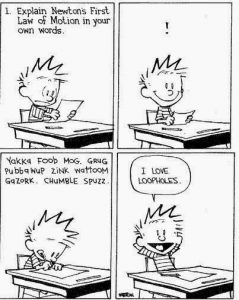Case 8.2 Ethics and Humanitarian Aid: Vertical Aid Programs
Vertical aid programs are special programs that are created to “target a particular disease, sector or technical intervention” (PBE 267). These programs are implemented in times to sudden disaster, such as the Cholera outbreak in Dr. Armans Asadour’s case. Vertical aid programs are set out to eliminated or control the specific disease. Although this is the goal, the site in which the doctors work in often have medicine to treat illnesses. In case 8.2, “Ethics and Humanitarian Aid: Vertical Aid programs”, Dr. Asadour brings up the question of whether or not vertical aid programs should accept/help patients without Cholera, and whether or not vertical aid programs actually bring about beneficial change. I firmly believe that vertical aid programs are most beneficial if the program follows its goal. In the case of Dr. Asadour, I believe that the programs should not accept people that do not have Cholera or Cholera symptoms.
Looking from a policy standpoint, this is a tough decision both ethically as well as logistically. However, the pros out weigh the cons; the doctors should only help those that have Cholera. The doctors of the vertical aid program were sent out for a specific goal: stop the Cholera outbreak. Cholera is an infectious and often fatal bacterial disease, which is easily contracted from infected water supplies (CDC). Given the fact the outbreak occurred in a heavily dense population of refuges, the impact of such a deadly disease should be given precedent. By allowing others come for unrelated medical treatments will only waste resources when battling against time. It is more important to control the disease that can do the most harm to the most amounts of people than spreading the aid to others.
Looking from a doctor’s standpoint, I can see how this decision to turn away easily treatable injured people can be conflicting to their morals. These doctors however are not in control of the situation and must look at it from a utilitarian standpoint. The most lives can be saved by first preventing the outbreak of Cholera. That being said, the doctors working in the field are working for a NGO for a specific cause, and should respect the decision of the NGO when committing to the job.
This case specifically reminds me of the most recent Ebola outbreak. At the time a vertical aid program was establish, where people were sent into countries to contain the virus as well as money being spent to find a cure . Due to the rapid response and focused goal of preventing the spread of this disease, the transmission of Ebola in West Africa was controlled. The increase of funding to combat Ebola has given countries in the area the experience and tools to rapidly identify any additional cases and to limit transmission(CDC).
Over all, I believe that Dr. Asadour has good reasons to be wary of his and the other doctors actions; however, he is not looking at the impact of his actions in a larger picture. Before the outbreak, the population had the diseases that they are seeking help for. They were surviving and were not posing immediate harm onto others. At the time of the outbreak, people were being infected with Cholera, and the disease was spreading rapidly. It would be logically sound to control the damage of the Cholera before attempting to help everyone else. That being said, I believe only after the outbreak has been contained, should the doctors be able to help others with non-Cholera related diseases.
Resources
Beauchamp, Tom L., and James F. Childress. Principals of Biomedical Ethics. New York: Oxford U.P., 1983. Print.
“Cholera – Vibrio cholerae infection.” Centers for Disease Control and Prevention. Centers for Disease Control and Prevention, 09 Nov. 2016. Web. 15 Apr. 2017.
“2014-2016 Ebola Outbreak in West Africa.” Centers for Disease Control and Prevention. Centers for Disease Control and Prevention, 22 June 2016. Web. 15 Apr. 2017.
